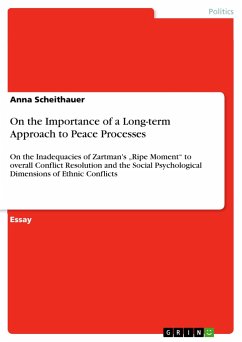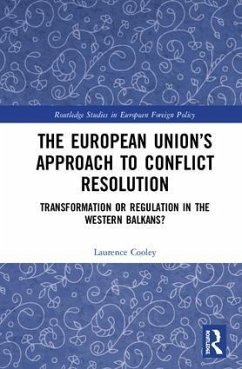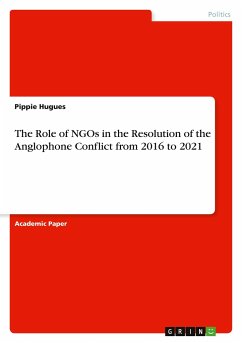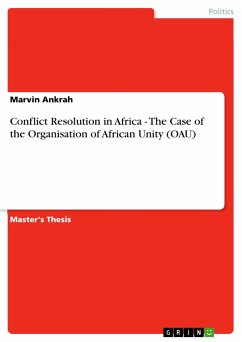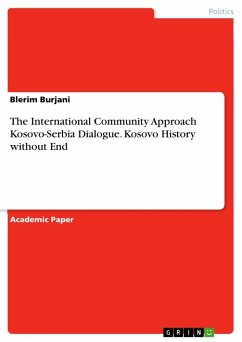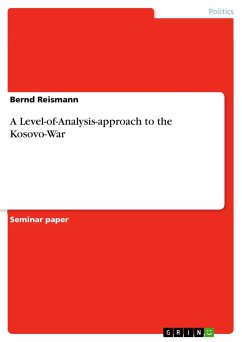
A Level-of-Analysis-approach to the Kosovo-War

PAYBACK Punkte
0 °P sammeln!
Seminar paper from the year 2006 in the subject Politics - International Politics - Region: South East Europe, Balkans, grade: 2,0, University of Münster (Institut für Politikwissenschaft), course: Conflict Resolution, language: English, abstract: This paper deals with the Kosovo-War of 1999 and tries to examine this conflict by using the Multi-Level-Analysis. This approach was first established by the Realist scholar Kenneth Waltz in 1954 and it marks a key aspect of the Realist-theory of International Relations.On the one hand the Multi-Level-Analysis provides the opportunity to explain th...
Seminar paper from the year 2006 in the subject Politics - International Politics - Region: South East Europe, Balkans, grade: 2,0, University of Münster (Institut für Politikwissenschaft), course: Conflict Resolution, language: English, abstract: This paper deals with the Kosovo-War of 1999 and tries to examine this conflict by using the Multi-Level-Analysis. This approach was first established by the Realist scholar Kenneth Waltz in 1954 and it marks a key aspect of the Realist-theory of International Relations.On the one hand the Multi-Level-Analysis provides the opportunity to explain the causes of war on different levels of society like the individual, the societal and the international level. On the other hand, conflict resolutions can be found as well by finding and solving the conflict causes on each level.In its first chapter, the following paper will give an overview of the Realist Multi- Level-Analysis as presented by Kenneth Waltz. The theory's application for the explanation and the resolution of conflicts will also be an aspect of the first chapter. The following chapters will use this theoretical template to find and to explain the different conflict causes on each level which lead to the Kosovo-War.Therefore, the second chapter examines the behaviour and policy of the two major protagonists on the individual level. Slobodan Milosevic as President of Yugoslavia and Ibrahim Rugova as the representative of the Kosovo-Albanians will be confronted and compared to find the conflict's individual motives.The third chapter deals with the national resp. societal level. Here the conflicting interests of different ethnical or social groups shall be presented. But also economical problems and social injustice played an important role for the rise of the conflict in Kosovo. These aspects will be examined as well.The fourth chapter gives an overview of the most important actors on the international level. Those are organisations like the EU, NATO, OSCE but also Russia and the USA. Their roles, interests and importance during the conflict will be explained and compared regarding Waltz' theory about conflict causes on the international level.The paper ends with a summary of the preceding chapters and a critical view on Waltz' theory. The questions, in how far the Multi-Level-Analysis is applicable on the Kosovo-War and whether it can offer possibilities for conflict resolution will be answered in this last chapter.




